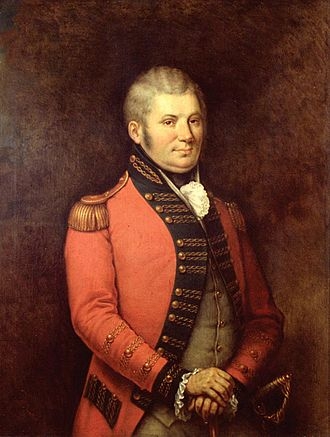Letter to Sir Joseph A. Banks, written by Lieut.-Governor Simcoe, in 1791, Prior to His Departure from England for the Purpose o
Book Details
| Title: | Letter to Sir Joseph A. Banks, written by Lieut.-Governor Simcoe, in 1791, Prior to His Departure from England for the Purpose o | ||||||||
| Author: |
| ||||||||
| Published: | 1791 | ||||||||
| Publisher: | The Copp, Clark Co., Limited | ||||||||
| Tags: | Canada, history | ||||||||
| Description: | An interesting letter sent by Simcoe to the celebrated scientist and explorer Sir Joseph Banks (1743-1820). Scadding's small but very interesting collection also includes five official speeches delivered by Simcoe, three memorial inscriptions, a second letter by Simcoe, and an account by military chaplain George Jenkins of the death in 1812 of Simcoe's eldest son Francis Gwillim Simcoe (after whom Toronto's Castle Frank is named) at the siege of Badajoz. [Suggest a different description.] |
||||||||
| Downloads: | 32 | ||||||||
| Pages: | 13  |
Author Bio for Simcoe, John Graves

John Graves Simcoe, Lieutenant-Governor of Upper Canada, and military leader of Canada, and one of the true Canadian "Fathers of Confederation".
Excerpt from the Canadian Encyclopedia:
Simcoe, John Graves, army officer, Lt-Gov of Upper Canada (b at Cotterstock, Eng 25 Feb 1752; d at Exeter, Eng 26 Oct 1806). Commander of the Queen's Rangers in the American Revolution, he became in 1791 the first Lt-Gov of Upper Canada, where he arrived in 1792. He began the policy of granting land to American settlers, confident that they would become loyal settlers and aware that they were the main hope for rapid economic growth. He saw the southwestern peninsula as the future centre not only of the province but of trade with the interior of the continent. He founded York [Toronto], intending it to be a temporary capital, and laid the foundation of a road system. He wanted to make the colony an example of the superiority of British institutions, and he appointed lieutenants of counties, introduced a court of king's bench and had slavery declared illegal. He also effectively defeated attempts to set up elected town meetings on the New England model. He proposed municipal councils, urged a university with preparatory schools and sought the full endowment of the Church of England. He had few critics in the province but could not persuade the imperial government to finance his projects or to exempt him from the military authority of Guy Carleton, Lord Dorchester, at Québec. Concerned about defence and in ill health, he left the colony in 1796. He was then governor of Santo Domingo [Dominican Republic] and later commander of the Western District in England. Appointed commander in chief for India in 1806, he died before he could take up the position.
Available Formats
No book directory. Upload has not been completed.This book is in the public domain in Canada, and is made available to you DRM-free. You may do whatever you like with this book, but mostly we hope you will read it.
Here at FadedPage and our companion site Distributed Proofreaders Canada, we pride ourselves on producing the best ebooks you can find. Please tell us about any errors you have found in this book, or in the information on this page about this book.